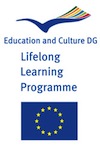ECTS, ECVET and ULLL
The most recent definition of ECTS is:
"ECTS is a learner-centred system for credit accumulation and transfer based on the transparency of learning outcomes and learning processes. It aims to facilitate planning, delivery, evaluation, recognition and validation of qualifications and units of learning as well as student mobility. ECTS is widely used in formal higher education and can be applied to other lifelong learning activities".
It is clear from this revised definition that progressively the notion of ‘accumulation of credits' leading to qualifications is becoming more important, that the notion of learning outcomes is becoming central and that the processes tends to cover not only programmes of initial higher education but also lifelong learning provision.
Thus ECTS appears more closely linked to the lifelong learning perspective, to validation of non formal and informal learning, to EQF and NQF.
But such a perspective provokes debate. Currently, the main issue is about what would be the best basis now to define credits: contact hours? workload? or learning outcomes? ECTS has moved the debate from contact hours to student workload but now the challenge is learning outcomes - how does that concept fit with the idea of credit based on workload?
The Tuning project has made as significant contribution to this discussion, trying to link learning outcomes, competences and ECTS workload based credits. Tuning calls for a new concept for ECTS. According their recent report (Universities' contribution to the Bologna process, an introduction , December 2006), it implies the change of the European Credit Transfer System into a European Credit Transfer and Accumulation System, in which credits no longer have a relative value but an absolute one and are linked to learning outcomes".


.png)
